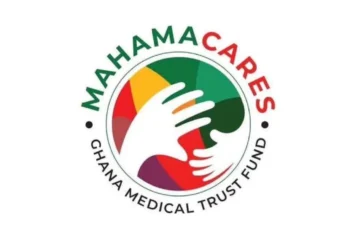The Association of Ghana Industries (AGI) has cautioned that skyrocketing input prices should be regulated; otherwise, Ghana’s manufacturers would become importers.
The Greater Accra Regional Chairman of the Association of Ghana Industries (AGI), Tsonam Cleanse Akpeloo, noted in an interview that prices of final goods would continue to rise if the high Producer Price Inflation rate in the country is not checked.
In expounding further, Mr. Akpeloo said that importers of finished products have to incur a lower cost of doing business than those that have to import and manufacture, making it unfriendly to produce locally. “Very soon, you may witness an increase in the importation of finished goods and a decrease in the production of products locally, which is certainly not good for Ghana,” he added.
The Ghana Statistical Service showed that the year-on-year producer inflation for all industries was 29.3 % in March 2022. Mr. Akpeloo noted that despite the instability in the exchange rate, the Government of Ghana should do its part in regulating it.
“The rate of the producer price inflation is significant because, by the time the cost of inputs goes up by the levels we’ve seen, it ends up affecting the entire production cycle- the cost of production and the final price that goes to the final consumer. The reality is that the exchange rate instability we’ve witnessed in the past couple of weeks has been part of the reason for the hike in the price of inputs producers use, as most of our inputs are imported. In as much as there are external factors affecting prices in Ghana, the government needs to do its part to check the high price increases.”
Mr. Akpeloo

Review some taxes affecting producers
In the context of the ambitious revenue mobilization drive and the challenging fiscal outlook of the Government of Ghana, Mr. Tsonam Cleanse Akpeloo advised the government to review some taxes affecting producers while taking a second look at the revised benchmark discount values policy as it makes it cheaper to import than produce in Ghana.
Since the benchmark value policy initiation, local producers have decried its negative impact on production. Ghanaians believe that as the government continues to subsidize imports, it is inevitable that the local economy will continue to cripple by the flooding of foreign goods on the Ghanaian market.
The 29.3 percent year-on-year producer inflation rate for all industries indicates that between March 2021 and March 2022, prices received by domestic producers for the production of their goods and services increased by 29.3 percent.
The producer price inflation rate for all industries was 13.0 % in March 2021. The rate decreased to 10.9 % in April 2021 but increased to 11.8 percent in May 2021. The rate continuously reduced to a record 8.1 percent in August 2021. Subsequently, the rate has resumed upwardly, rising to 29.3 % in March 2022. The Manufacturing subsector, which constitutes more than two-thirds of the total industry, increased by 7.2 percent, recording the highest year-on-year producer price inflation rate of 36.0 percent.
READ ALSO: Don’t blame Russia for Ghana’s Agro-Crisis



















